Food for thoughts
Nov. 1, 2024
Thesaurus : Doctrine
► Référence complète : A. Latil, “Telegram et le délit d'administration d’une plateforme de transactions illicites“, CCE, novembre 2024, n° 11, alerte 318, pp. 3-4
____
🦉Cet article est accessible en texte intégral pour les personnes inscrites aux enseignements de la Professeure Marie-Anne Frison-Roche
________

Oct. 29, 2024
MAFR TV : MAFR TV - Overhang

🌐suivre Marie-Anne Frison-Roche sur LinkedIn
🌐s'abonner à la Newsletter MAFR. Regulation, Compliance, Law
🌐s'abonner à la Newsletter Surplomb, par MAFR
____
► Référence complète : M.-A. Frison-Roche, "Droit processuel de la Régulation et de la Compliance", in série de vidéos Surplomb, 29 octobre 2024
____
🌐visionner sur LinkedIn cette vidéo de la série Surplomb
____
____
🎬visionner ci-dessous cette vidéo de la série Surplomb⤵️
____
Surplomp, par mafr
la série de vidéos dédiée à la Régulation, la Compliance et la Vigilance
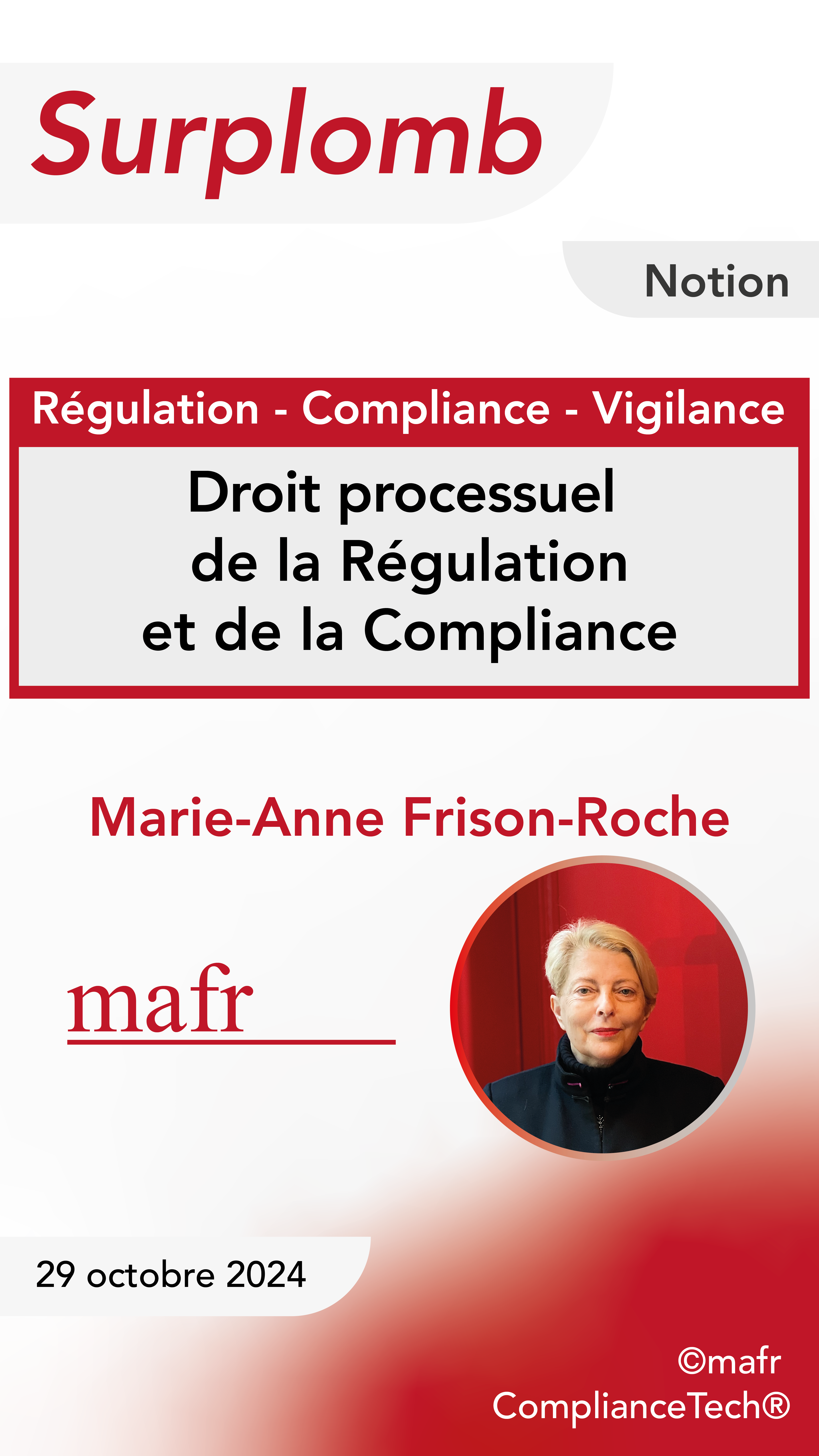


Oct. 25, 2024
MAFR TV : MAFR TV - Overhang
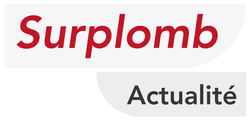
🌐suivre Marie-Anne Frison-Roche sur LinkedIn
🌐s'abonner à la Newsletter MAFR. Regulation, Compliance, Law
🌐s'abonner à la Newsletter Surplomb, par MAFR
____
► Référence complète : M.-A. Frison-Roche, "Cumul et articulation Droit spécial de la Compliance et Droit commun de la concurrence déloyale : l’arrêt de la CJUE du 4 octobre 2024 ND/DR", in série de vidéos Surplomb, 25 octobre 2024
____
🌐visionner sur LinkedIn cette vidéo de la série Surplomb
____
____
► Résumé de ce Surplomb : Sur question préjudicielle, la décision ND c/ DR de la CJUE du 4 octobre 2024 articule le Droit de la concurrence déloyale et protection des données, qui croise la vente de médicaments sur Internet.... Un pharmacien prend des informations personnelles sur la santé des acheteurs, un concurrent se plaint d'une violation du RGPD qui constitue un détournement de clientèle. Le RGPD n'ouvre pas une telle action. Ne la ferme pas non plus.
Bien que la protection des données soit assurée par des organes nationaux spéciaux et qu'il s'agit de protéger des droits spécifiques des personnes protégées, la Cour pose qu'un tiers peut se baser sur un tel comportement pour se situer sur le droit commun pour s'en plaindre, en tant qu'il est concurrent et qu'il peut alléguer que cela constitue un acte de concurrence déloyale.
Pour affirmer cela, Cour souligne qu'en premier lieu le RGPD ne confère pas de compétence exclusive et que d'autre part la convergence des actions renforce le Droit de l'Union car le RGPD vise aussi le flux des données, principe de liberté que protège aussi le droit de la concurrence déloyale, qui s'applique selon les conditions du droit (faute qualité, dommage, causalité).
____
🚧Lire le document de travail sous-jacent à ce Surplomb
____
🎬visionner ci-dessous cette vidéo de la série Surplomb⤵️
____
Surplomp, par mafr
la série de vidéos dédiée à la Régulation, la Compliance et la Vigilance
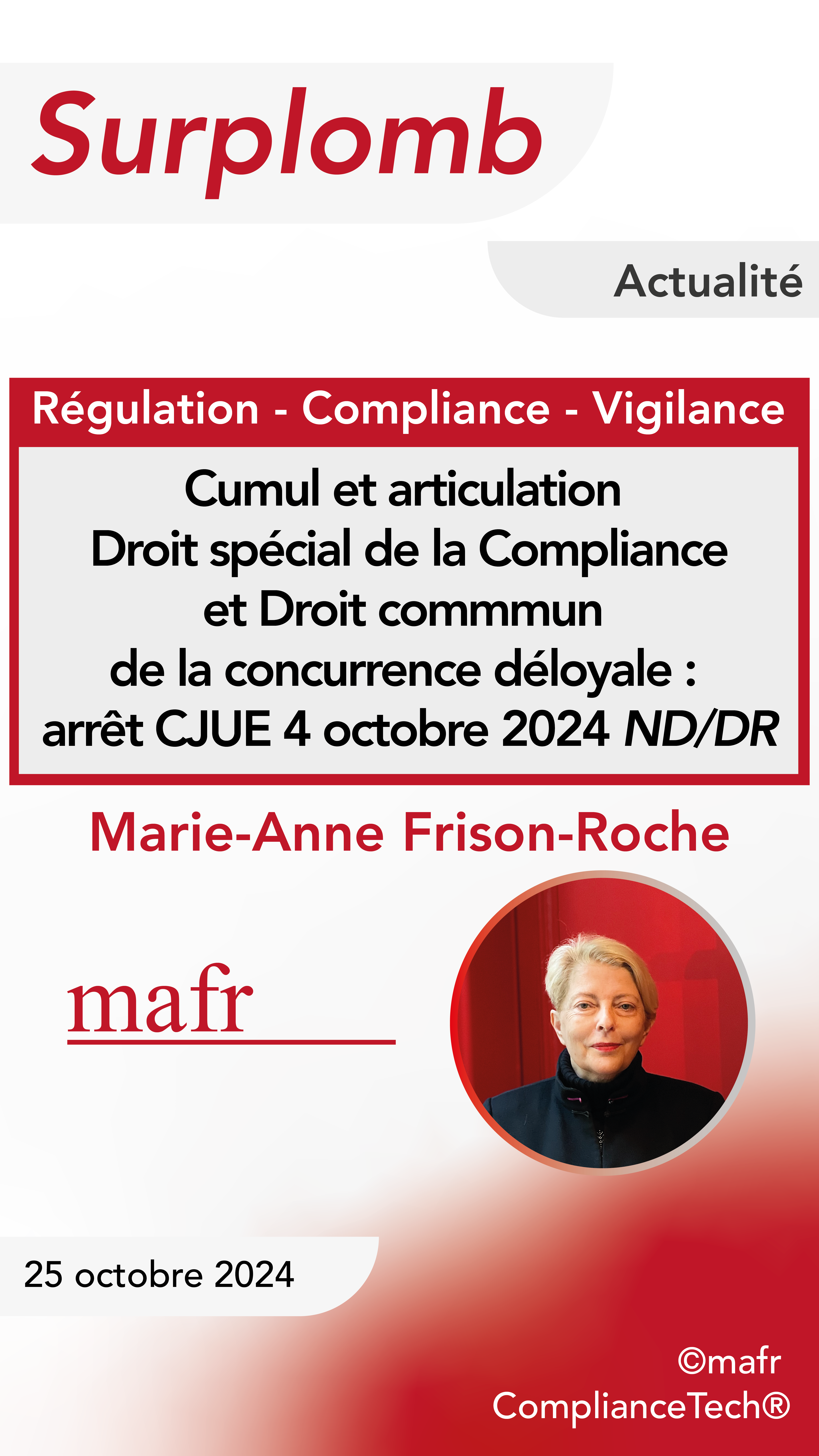

Oct. 24, 2024
Thesaurus : 03. Conseil d'Etat
► Référence complète : CE, Ass., 24 octobre 2024, 465144, Mutuelle centrale de réassurance (MCR)
____
________
Oct. 22, 2024
Interviews
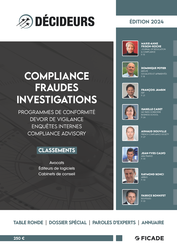
🌐follow Marie-Anne Frison-Roche on LinkedIn
🌐subscribe to the Newsletter MAFR. Regulation, Compliance, Law
🌐subscribe to the Newsletter Surplomb, par MAFR
____
► Full Reference: M.-A. Frison-Roche, "Les droits de la défense sont au bénéfice de tout le monde, y compris de l’entreprise elle-même" (The rights of defence benefit everyone, including the company itself), interview by Chloé Lassel, in Guide Compliance Fraudes Investigations, edition 2024, ed. Décideurs, Oct. 2024, pp.
____
💬read the interview (in French)
🌐its présentation on LinkedIn (in French)
____
► Presentation of this interview by Décideurs juridiques : "Directrice du Journal of Regulation & Compliance (JoRC) et fondatrice de l’École européenne de droit de la régulation et de la compliance, Marie-Anne Frison-Roche revient sur la révolution du droit de la compliance, son articulation avec les enquêtes internes et les droits de la défense, la place que vont y prendre les contrats et l’arbitrage international." ("Marie-Anne Frison-Roche, Director of the Journal of Regulation & Compliance (JoRC) and founder of the European School of Regulatory and Compliance Law, looks back at the revolution in Compliance Law, its relationship with internal investigations and the rights of the defence, and the role that contracts and international arbitration will play in it.
____
► Questions asked, Answers given:
Décideurs. Question : La compliance est au cœur des préoccupations des entreprises depuis plusieurs années. Pouvez-vous expliquer ce que c’est exactement ? (Compliance has been a key concern for companies for several years. Can you explain what it is exactly?)
Marie-Anne Frison-Roche. English summary Answer: 'Compliance' should not be confused with 'Compliance', which I defined in 2016. Compliance Law is an extension of Regulatory Law, by freeing the latter from the existence of a sector as a prerequisite and a regulatory authority as an indicator. Internalised in the company, it manifests itself, for example, in Vigilance mechanisms, which are its cutting edge. Through Compliance, the political authority asks companies to help it achieve "Monumental Goals", as I have suggested, standards in which this new branch of Law is anchored (anti-money laundering, anti-corruption, sustainability, etc.).
D. Q. : Les entreprises doivent désormais être enquêtrices et juges de ce qu’il leur arrive. Voire transmettre aux autorités, lorsqu’il le faut, des informations pouvant les incriminer. Comment concilier ces obligations avec les droits de la défense ? (Companies must now be investigators and judges of what happens to them. When necessary, they can even pass on incriminating information to the authorities. How do you reconcile these obligations with the rights of the defence?)
MaFR. English summary A.: In 2023, I proposed this expression of companies as "prosecutors and judges of themselves", and the place that this should give to the rights of the defence, and in 2024 I will work out the right balance between internal investigations and the rights of the defence. For the moment, this balance has not been achieved.
D. Q. : Dans l’un de vos ouvrages, François Ancel, conseiller à la première chambre civile de la Cour de cassation, écrit que la compliance renouvelle l’office du juge. Comment concilier cette idée avec l’office habituel du juge qui est celui de se prononcer sur des faits avérés et non pas futurs ? (In one of your books, François Ancel, judge in the First Civil Chamber of the French Court of Cassation, writes that Compliance is renewing the role of the judge. How do you reconcile this idea with the judge's usual role, which is to rule on proven facts rather than future ones?)
MaFR. English summary A.: Indeed, In this book La juridictionnalisation de la compliance (Compliance Jurisdictionalisation), he stresses that the role of the civil and commercial courts is being profoundly renewed, in particular because they must deal with what I described in 2021 as "Systemic Litigation" and must rule on the future. From then on, the ordinary courts will take centre stage.
D. Q. : Le recours aux clauses de compliance est-il une solution pour être à la hauteur des ambitions de la compliance et de ses exigences ? (Is the use of compliance clauses a solution for living up to the ambitions and requirements of compliance?)
MaFR. English summary A.: Indeed, in 2022, I developed the concepts of 'Compliance Contract' and 'Compliance clauses', by which companies implement their legal compliance obligations. This gives rise to Regulatory Contracts, particularly in business chains. This gives a great deal of leeway and power, but also Responsibility, to the companies that invent them.
D. Q. : Le recours aux arbitrages doit-il être privilégié ? (D. Q. Should recourse to arbitration be preferred?)
MaFR. English summary A.: It has to be. Because there is a contract. Even though Compliance is closely bound up with the legal obligations and public order, and possibly international public order. Even if this is not yet apparent, Compliance and International Arbitration are natural allies.
________

Oct. 14, 2024
Organization of scientific events
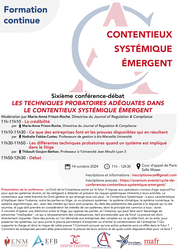
► Full Reference: Les techniques probatoires adéquates dans le Contentieux Systémique Émergent (Appropriate Evidentiary Techniques in Emerging Systemic Litigation), in cycle of conference-debates "Contentieux Systémique Émergent" ("Emerging Systemic Litigation"), organised on the initiative of the Cour d'appel de Paris (Paris Cour of Appeal), with the Cour de cassation (French Court of cassation), the Cour d'appel de Versailles (Versailles Court of Appeal), the École nationale de la magistrature - ENM (French National School for the Judiciary) and the École de formation des barreaux du ressort de la Cour d'appel de Paris - EFB (Paris Bar School), under the scientific direction of Marie-Anne Frison-Roche, October 14, 2024, 11am.-12.30pm., Paris Court of Appeal, Masse courtroom
____
► Presentation of the conference:
____
🧮Programme of this event:
Sixth conference-debate
LES TECHNIQUES PROBATOIRES ADÉQUATES
DANS LE CONTENTIEUX SYSTÉMIQUE ÉMERGENT
(APPROPRIATE EVIDENTIARY TECHNIQUES
IN EMERGING SYSTEMIC LITIGATION)
Cour d’appel de Paris, salle Masse
Presentation and moderation by 🕴️Marie-Anne Frison-Roche, Professor of Regulatory and Compliance Law, Director of the Journal of Regulation & Compliance (JoRC)
🕰️11am.-11.10am. 🎤La crédibilité (Credibility), by 🕴️Marie-Anne Frison-Roche, Professor of Regulatory and Compliance Law, Director of the Journal of Regulation & Compliance (JoRC)
🕰️11.10am.-11.30am. 🎤Ce que des entreprises font et les preuves disponibles qui en résultent (What firms are doing and evidence available as a result), by 🕴️Nathalie Fabbe-Costes, Professor of management at Aix-Marseille University
🕰️11.30am-11.50am. 🎤Les différentes techniques probatoires quand un système est impliqué dans un litige (The various evidential techniques when a system is involved in a dispute), by 🕴️Thibault Goujon-Bethan, Professor of Law at Jean-Moulin Lyon 3 University, director of the Centre patrimoine et contrats, director of the IEJ de Lyon
🕰️11.50am.-12h30pm. Debate
____
🔴Registrations and information requests can be sent to: inscriptionscse@gmail.com
🔴For the attorneys, registrations have to be sent to the following address: https://evenium.events/cycle-de-conferences-contentieux-systemique-emergent/
⚠️The conference-debates are held in person only, in the Cour d’appel de Paris (Paris Court of Appeal).
________

Oct. 11, 2024
MAFR TV : MAFR TV - Overhang

🌐suivre Marie-Anne Frison-Roche sur LinkedIn
🌐s'abonner à la Newsletter MAFR. Regulation, Compliance, Law
🌐s'abonner à la Newsletter Surplomb, par MAFR
____
► Référence complète : M.-A. Frison-Roche, "L'extension du domaine de la CJIP par la voix de la connexité : la CJIP Nestlé Waters du 2 septembre 2024", in série de vidéos Surplomb, 11 octobre 2024
____
🌐visionner sur LinkedIn cette vidéo de la série Surplomb
____
____
🎬visionner ci-dessous cette vidéo de la série Surplomb⤵️
____
Surplomp, par mafr
la série de vidéos dédiée à la Régulation, la Compliance et la Vigilance
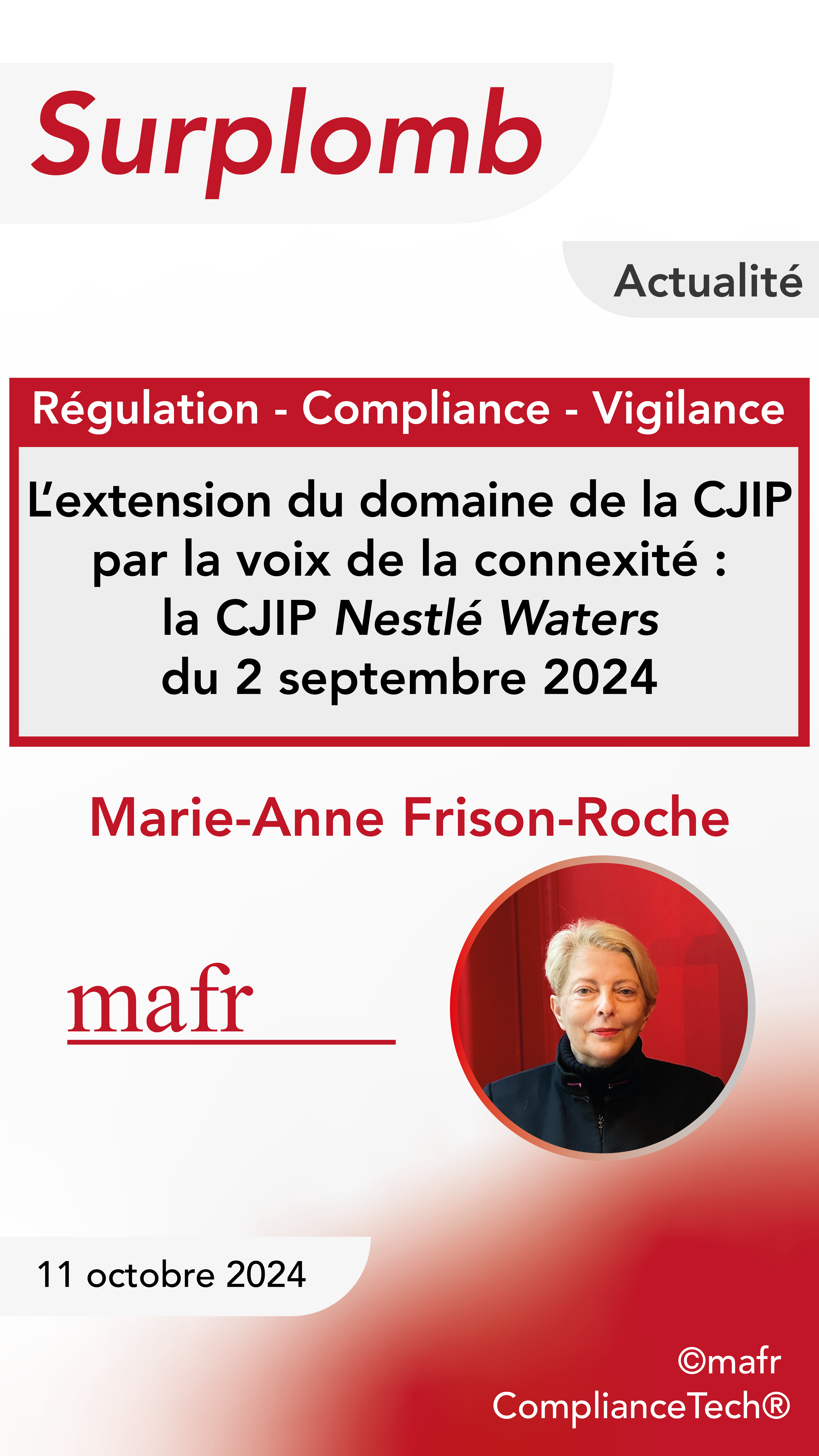

Oct. 10, 2024
Interviews
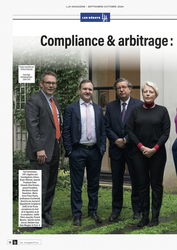
🌐follow Marie-Anne Frison-Roche on LinkedIn
🌐subscribe to the Newsletter MAFR. Regulation, Compliance, Law
🌐subscribe to the Newsletter Surplomb, by MAFR
____
► Full Reference: M.-A. Frison-Roche, E. Silva Romero, G. Filhol, V. Autret, B. Sillaman et K. Hennessee, Compliance & arbitrage : les prémices d’une symbiose, propos recueillis par O. Delaunay, LJA Magazine, septembre-octobre 2024, pp. 12-20
____
💬read the collective interview (in French)
____
🌐read the presentation of this interview on LinkedIn
____
► Topics covered during this collective interview:
-
The development of Compliance in an international environment
-
The Arbitrator and the concept of Compliance
-
Linking Arbitration and Compliance systems
____
► Summary of my interventions: Compliance Law appears to be developing in the context of international trade and Arbitration.
For my part, I placed particular emphasis on the fact that the first reports were the result of "negative reports" between Compliance and Arbitration, through Criminal Law and the obligation of arbitrators to ensure that they don't give effectivity to pacts of corruption. But the future lies in a more 'positive' and fruitful relationship between this new branch of law, Compliance Law, and the solid prospect offered by Arbitration, in that the arbitrator, this natural judge of international trade, will be able to support the contractualisation of Compliance obligations, particularly about due diligences in structural chains of activities and duty of vigilance.
Thus competent, the international arbitrator must respond to what the Monumental Goals in which Compliance Law is rooted expect of him/her: to provide solutions and remedies to issues that often concern an entire chain of activity or an entire sector in a more systemic perspective than in a traditional conception. This applies not only to investment arbitration, but also, for instance, to infrastructure arbitration. The concern for sustainability and the systemic perspective must be integrated into the reasoning and produce appropriate case law, a sort of new doctrine in the arbitration order, that will make more attractive the arbitration place that will most solidly link the skills of specialists in Compliance Law and Arbitration Law.
________
Oct. 4, 2024
Thesaurus : 05. CJCE - CJUE
► Référence complète : CJUE, Grande chambre, 4 octobre 2024, aff. C-21/23, ND c/ DR
____
________

Oct. 3, 2024
MAFR TV : MAFR TV - Overhang

🌐suivre Marie-Anne Frison-Roche sur LinkedIn
🌐s'abonner à la Newsletter MAFR. Regulation, Compliance, Law
🌐s'abonner à la Newsletter Surplomb, par MAFR
____
► Référence complète : M.-A. Frison-Roche, "Le Contentieux Systémique, notion nouvelle au-delà des branches traditionnelles du Droit", in série de vidéos Surplomb, 3 octobre 2024
____
🌐visionner sur LinkedIn cette vidéo de la série Surplomb
____
____
🎬visionner ci-dessous cette vidéo de la série Surplomb⤵️
____
Surplomp, par mafr
la série de vidéos dédiée à la Régulation, la Compliance et la Vigilance
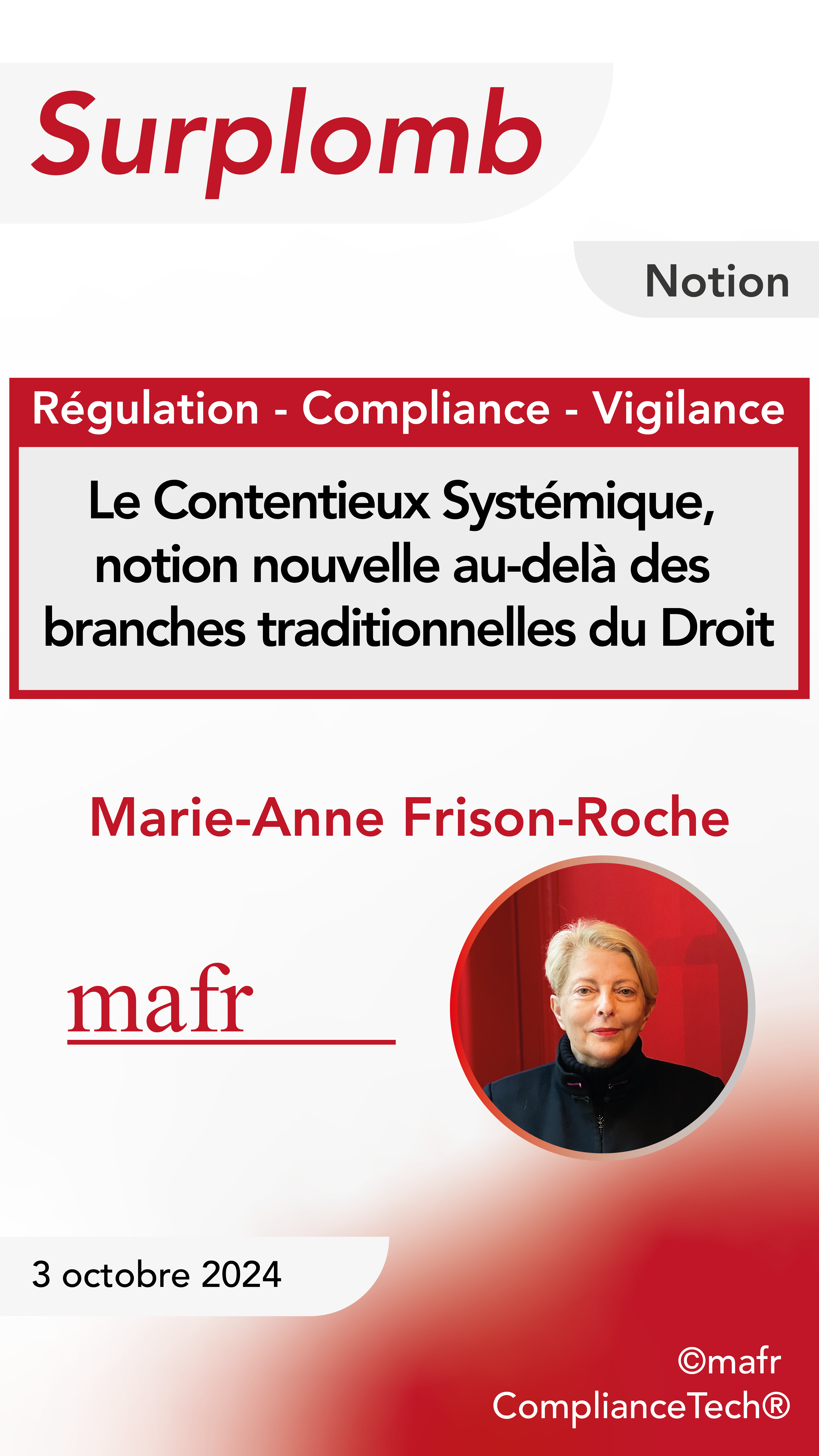

Oct. 2, 2024
Thesaurus : 02. Cour de cassation
► Référence complète : Civ. 1, 2 octobre 2024, n° 22-20.883 et 23-50.002
____
🏛️lire l'arrêt rendu à la suite du pourvoi n° 22-20.883
🏛️lire l'arrêt rendu à la suite du pourvoi n° 23-50.002
____
🏛️lire le communiqué de presse de la Cour de cassation accompagnant la publication de ces décisions
____
📝Commentaires de ces décisions :
- JCP G, 14 octobre 2024, n° 41, actualité 1185, p. 1970
________
Oct. 1, 2024
Thesaurus : 02. Cour de cassation
► Référence complète : Crim., 1er oct. 2024, n° 23-81.328
____
____
🌐Lire le commentaire fait de cet arrêt
________

Sept. 25, 2024
Organization of scientific events
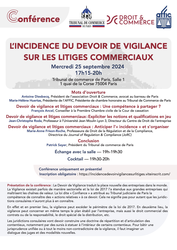
🌐follow Marie-Anne Frison-Roche on LinkedIn
🌐subscribe to the Newsletter MAFR Regulation, Compliance, Law
____
► Full Reference: M.-A. Frison-Roche, coordination of the conference L'incidence du devoir de vigilance sur les litiges commerciaux (The impact of the duty of vigilance on commercial litigation), Tribunal de commerce de Paris (Paris Commercial Court), Droit & Commerce and Association Française en Faveur de l'Institution Consulaire (AFFIC), Tribunal de commerce de Paris, 25 September 2024, 5.15p.m. to 8p.m.
____
🧮see the full programme of this event
____
🌐consult on LinkedIn a general présentation of this event (in French)
____
► General presentation of the conference: The Duty of Vigilance reflects the new role of firms in the world. Vigilance sometimes existed on a sectoral basis, but the 2017 French law extended it to large companies that control value chains. The French so-called "confiance" law gave the Tribunal judiciaire de Paris (Paris First Instance Civil Court) jurisdiction to hear "actions relatives" ("actions relating") to this duty. This does not mean, however, that the commercial courts will no longer have jurisdiction.
Firstly, vigilance may go beyond the scope of the 2017 French law. Secondly, vigilance may concern not only the plan drawn up by the firm, but also Commercial Contract Law or Liability Law, special Distribution Law, etc.
Commercial courts will have to develop a doctrine for dividing up and coordinating disputes, in particular by staying proceedings within certain disputes. To build a unified or at least non-contradictory case law on vigilance, we need to imagine a dialogue between judges and new procedures.
____
🧮Programme of this event:
L'INCIDENCE DU DEVOIR DE VIGILANCE SUR LES LITIGES COMMERCIAUX
(THE IMPACT OF THE DUTY OF VIGILANCE ON COMMERCIAL LITIGATION)
Paris First Instance Commercial Court, room 1
🕰️5.15pm.-5.30pm. Welcome
🕰️5.30pm.-5.40pm. 🎤Mots d'ouverture (Opening words), by 🕴️Antoine Diesbecq, President of Droit & Commerce, attorney at the Paris Bar and 🕴️Marie-Hélène Huertas, President of AFFIC, Honorary President of Chamber of the Paris First Instance Commercial Court
🕰️5.40pm.-6pm. 🎤Devoir de vigilance et litiges commerciaux : Une compétence à partager ? (Duty of Vigilance and Commercial Litigation: A jurisdiction to share?), by 🕴️François Ancel, Judge at the Première Chambre civile de la Cour de cassation (First Civil Chamber of the French Court of cassation)
🕰️6pm.-6.20pm. 🎤Devoir de vigilance et litiges commerciaux : Expliciter les notions et qualifications en jeu (Duty of Vigilance and Commercial Litigation: Explain the concepts and qualifications involved?), by 🕴️Jean-Christophe Roda, Full Professor at Jean Moulin Lyon 3 University, Director of the Centre de Droit de l’entreprise
🕰️6.20pm.-6.40pm. 🎤Devoir de vigilance et litiges commerciaux : Anticiper l''incidence" et s’organiser (Duty of Vigilance and Commercial Litigation: Anticipating the "impact" and getting organised), by 🕴️Marie-Anne Frison-Roche, Professor of Regulatory Law and Compliance Law, Director of the Journal of Regulation & Compliance (JoRC)
🕰️6.40pm.-7pm. 🎤Conclusion (Conclusion), by 🕴️Patrick Sayer, President of the Tribunal de commerce de Paris (Paris First Instance Commercial Court)
🕰️7pm.-7.30pm. Discussion with the audience
🕰️7.30pm.-8pm. Cocktail
________
Sept. 25, 2024
Conferences

🌐follow Marie-Anne Frison-Roche on LinkedIn
🌐subscribe to the Newsletter MAFR Regulation, Compliance, Law
🌐subscribe to the Video Newsletter MAFR Surplomb
____
► Full Reference: M.-A. Frison-Roche, "Devoir de vigilance et litiges commerciaux : Anticiper l'"incidence" et s’organiser" ("Duty of vigilance and Commercial Litigation: Anticipating the "impact" and getting organised"), in L'incidence du devoir de vigilance sur les litiges commerciaux (The Impact of the Duty of Vigilance on Commercial Litigation), Tribunal de commerce de Paris (Paris Commercial Court), Droit & Commerce and Association Française en Faveur de l'Institution Consulaire (AFFIC), Tribunal de commerce de Paris, September 25, 2024, 17.15pm to 20pm
____
🌐read the report of this speech on LinkedIn (in French)
____
🧮see the full programme of this event (in French)
____
🧱consult the scientific coordination sheet of this event
____
🌐consult on LinkedIn a general presentation of this event (in French)
____
► English Summary of the conference: After listening to the enlightening speeches of François Ancel and Jean-Christophe Roda, I had the great opportunity to emphasise, as they did, that the duty of vigilance, in the respect of French laws of 2017 and 2021, with a view to the transposition of the CS3D, does not imply, so brutally as has been said, a lack of knowledge by judges other than those of the Tribunal judiciaire de Paris (Paris First Instance Civil Court) of this new Law, which is the extension of Compliance Law, as François Ancel reminded us.
Because Commercial Court judges deal with Contract Law on a daily basis, and because companies build their value chains through contracts that should be described as "regulatory contracts", the duty of vigilance has an "impact" on these disputes.
These disputes may be of a "systemic" nature.
This can only result not in jurisdictional trenches, but in "shared jurisdiction", along the lines drawn by François Ancel. This sharing must be built through a dialogue between judges, a necessary method on which Patrick Sayer concluded this elaborate conference on an essential and forward-looking subject.
________
Sept. 24, 2024
Thesaurus : 02. Cour de cassation

Sept. 20, 2024
MAFR TV : MAFR TV - Overhang
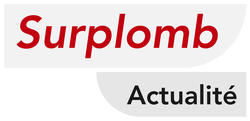
🌐suivre Marie-Anne Frison-Roche sur LinkedIn
🌐s'abonner à la Newsletter MAFR. Regulation, Compliance, Law
🌐s'abonner à la Newsletter Surplomb, par MAFR
____
► Référence complète : M.-A. Frison-Roche, "De quoi la nouvelle chambre du TJ Paris est-elle le signe ?", in série de vidéos Surplomb, 20 septembre 2024
____
🌐visionner sur LinkedIn cette vidéo de la série Surplomb
____
____
🎬visionner ci-dessous cette vidéo de la série Surplomb⤵️
____
Surplomp, par mafr
la série de vidéos dédiée à la Régulation, la Compliance et la Vigilance
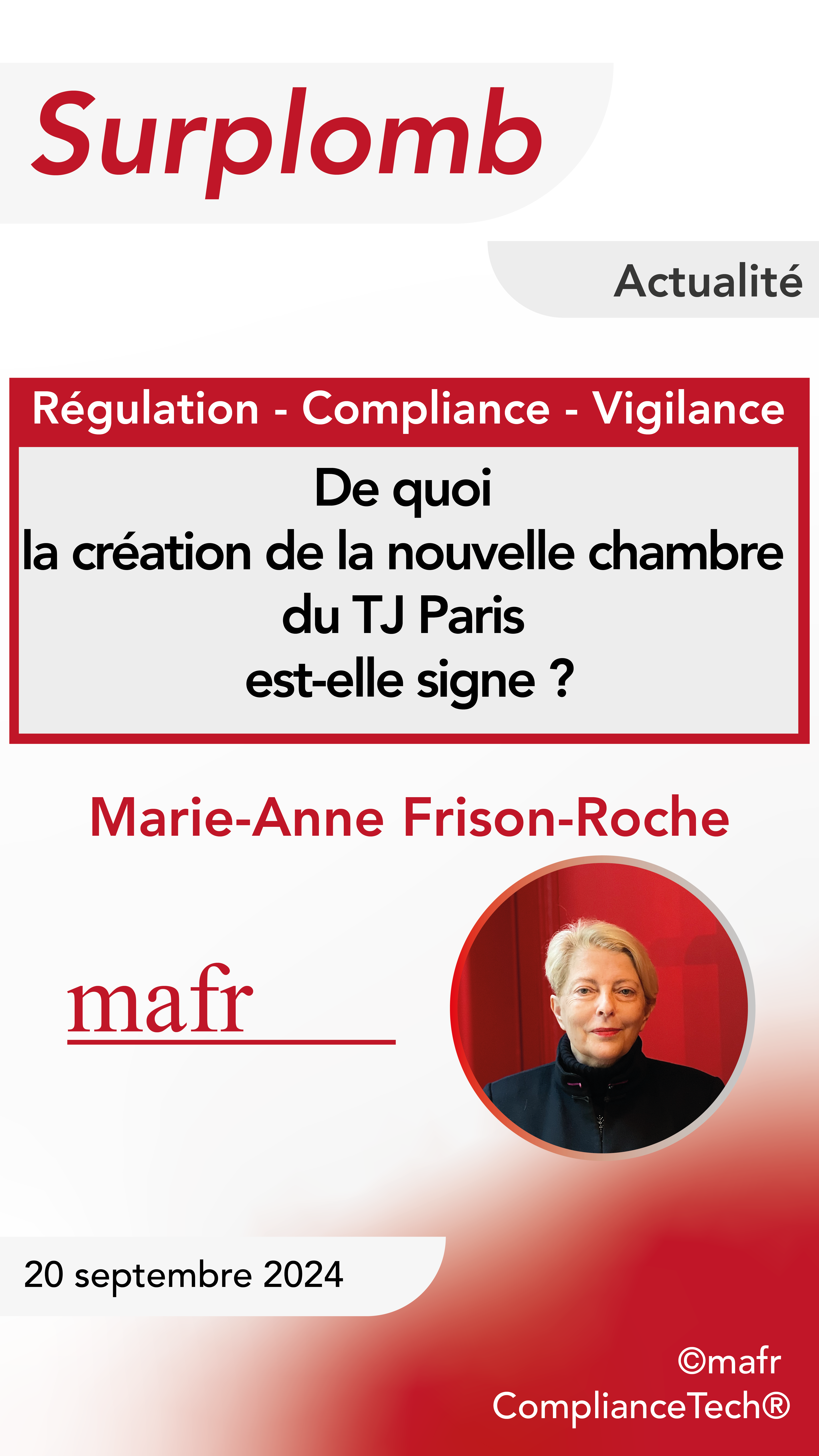

Sept. 17, 2024
Thesaurus : Soft Law
► Référence complète : TJ Paris, Présidence du tribunal judiciaire, Pôle activité économique et commerciale, 34ème chambre, Communiqué de presse relatif à la création de la 34ème chambre, intitulée "Chambre de la régulation sociale, économique et environnementale", 17 septembre 2024
____
____
🌐visionner sur LinkedIn la vidéo publiée par mafr à ce propos dans la série de vidéos Surplomb
____
📱consulter la vidéo publiée par mafr à ce propos dans la série de vidéos Surplomb
____
📧consulter sur LinkedIn l'article publié par Marie-Anne Frison-Roche dans la Newsletter MAFR. Regulation, Compliance, Law, à propos de la création de cette 34ième chambre du TJ Paris
________
Sept. 12, 2024
Editorial responsibilities : Direction of the collection "Cours-Série Droit privé", Editions Dalloz (33)
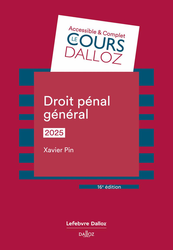
► Référence complète : X. Pin, Droit pénal général 2025, Dalloz, coll. "Cours Dalloz-Série Droit privé", 16ième éd., 2024, 722 p.
____
► Présentation de l'ouvrage : La nouvelle édition pour 2024 de cet ouvrage à jour des dernières réformes, aborde dans un premier temps la "loi pénale", dans sa détermination et dans son application, puis dans un deuxième temps l'ouvrage aborde "l'infraction" avec sa qualification et son imputation pour finir dans une troisième partie sur "la peine", en distinguant entre la peine encourue, la peine prononcée et la peine exécutée.
____
📚Consulter l'ensemble de la collection dans laquelle l'ouvrage a été publié
____
📚Sont directement corrélés à cet ouvrage :
🕴️Ch. André, 📕Droit pénal spécial
🕴️E. Verny, 📕Procédure pénale
🕴️G. Beaussonie, 📕Droit pénal des affaires
________

Sept. 9, 2024
Organization of scientific events
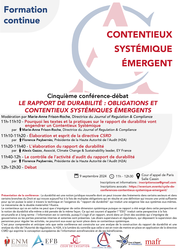
► Full Reference: M.-A. Frison-Roche, Scientific direction of the conference Le rapport de durabilité : obligation et Contentieux Systémiques Émergents (The Sustainability Report: Emerging Systemic Obligations and Litigation), in cycle of conference-debates "Contentieux Systémique Émergent" ("Emerging Systemic Litigation"), organised on the initiative of the Cour d'appel de Paris (Paris Cour of Appeal), with the Cour de cassation (French Court of cassation), the Cour d'appel de Versailles (Versailles Court of Appeal), the École nationale de la magistrature - ENM (French National School for the Judiciary) and the École de formation des barreaux du ressort de la Cour d'appel de Paris - EFB (Paris Bar School) and MAFR, September 19, 2024, 11h-12h30, Cour d'appel de Paris, Cassin courtroom
____
► Presentation of the conférence: Sustainability is a new legal concept, the lineaments of which can be found in certain sectors and branches of Law, and which today has both multiple resulting obligations and a definition that is sufficiently unified to allow it to be grasped through the technique and the requirement of the "Sustainability Report", which translates a requirement linked to the systems themselves. The dual materiality mechanism illustrates this.
The Litigation that will ensue shall be imbued with this systemic dimension, since this report was required from this perspective, and the notion of Sustainability itself was conceived in the same way. What is commonly referred to as "ESG" reflects this perspective, which is both structural and long-term: Information is central here, since it is a Report, anchored in the new conception of Corporate Law that is imbued with Governance, where internal and external stakeholders are present. The various Supervisors and Regulators, who go beyond supervising professionals to regulate activities, are also bound to have a role to play in this Emerging Systemic Litigation.
In order to understand and anticipate this, this conference is built around an analysis of the construction of the Sustainability Report and an analysis of the role of the Regulatory and Supervisory Authority, the French Audit Authority, the Haute Autorité de l'Audit - H2A. These analyses are carried out with a view to the Systemic Litigation that will arise from these new requirements and practices, in correlation with Litigation linked to other fields of Systemic Litigation such as Vigilance field.
____
🧮Programme of this event:
Fith conference-debate
LE RAPPORT DE DURABILITÉ : OBLIGATIONS ET CONTENTIEUX SYSTÉMIQUES ÉMERGENTS
(THE SUSTAINABILITY REPORT: EMERGING SYSTEMIC OBLIGATIONS AND LITIGATION)
Paris Court of Appeal, Cassin courtroom
🕰️11am.-11.10am. 🎤Pourquoi les textes et la pratiques sur le rapport de durabilité vont engendrer un Contentieux Systémique (Why the texts and practices on sustainability reporting will give rise to Systemic Litigation), by 🕴️Marie-Anne Frison-Roche, Professor of Regulatory Law and Compliance Law, Director of the Journal of Regulation & Compliance (JoRC)
➡️read the presentation of this speech
🕰️11.10am.-11.20am. 🎤Élaboration et esprit de la directive CSRD (Elaboration and spirit of the CSRD), by 🕴️Florence Peybernès, President of the Haute Autorité de l'Audit - H2A (French High Audit Authority)
🕰️11.20am.-11.40am. 🎤Comment construire un rapport de durabilité ? (How to build a sustainability report?), by 🕴️Alexis Gazzo, Partner, Climate Change & Sustainability leader, EY France
🕰️11.40am.-12pm. 🎤Le contrôle de l'activité d'audit du rapport de durabilité (The control of the audit of the sustainability report), by 🕴️Florence Peybernès, President of the Haute Autorité de l'Audit - H2A (French High Audit Authority)
🕰️12pm.-12.30pm. Debate
____
🔴Registrations and information requests can be sent to: inscriptionscse@gmail.com
🔴For the attorneys, registrations have to be sent to the following address: https://evenium.events/cycle-de-conferences-contentieux-systemique-emergent/
⚠️The conference-debates are held in person only, in the Cour d’appel de Paris (Paris Court of Appeal).
________
Sept. 5, 2024
Editorial responsibilities : Direction of the collection "Cours-Série Droit privé", Editions Dalloz (33)
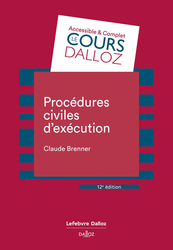
► Référence complète : Cl. Brenner, Procédure civiles d'exécution, Dalloz, coll. "Cours Dalloz-Série Droit privé", 1ière éd., 1998, 12ième éd., 2024, 330 p.
____
► Présentation de l'ouvrage : Dans la 12ième édition de ce manuel à jour de la réforme du droit des sûretés, Claude Brenner expose les règles relatives aux procédures civiles d'exécution en tant qu'elles sont le complément du Droit des obligations, puisqu'elles rendent effectif l'effet obligatoire des contrats et la responsabilité des personnes.
A jour de toutes les réformes successives, ce manuel permet de comprendre l'ensemble de la manière, dans ses règles communes et dans les procédures spécifiques qui s'y sont développées.
L'ouvrage est construit en deux titres, le premier traitant des procédures d'exécution, le second traitant des procédures de distribution.
____
____
____
📚Consulter l'ensemble de la collection dans laquelle l'ouvrage a été publié
____
📚Sont directement corrélés à cet ouvrage :
🕴️N. Cayrol, 📕Procédure civile
🕴️J.-B. Seube, 📕Droit des sûretés
________
Sept. 5, 2024
Thesaurus : Doctrine
► Référence complète : U. Öberg, "A ‘General’ Court in Name Only", Concurrences, septembre 2024, n° 3, art. n°119581, pp. 2-6
____
► Résumé de l'article :
____
🦉Cet article est accessible en texte intégral pour les personnes inscrites aux enseignements de la Professeure Marie-Anne Frison-Roche
________
Sept. 2, 2024
Thesaurus : Convention, contract, settlement, engagement
► Référence complète : Convention judiciaire d'intérêt public en matière environnementale (CJIP) entre le Procureur de la République près le Tribunal judiciaire d'Epinal et la société Nestlé Waters Supply Est SAS, 2 septembre 2024, dite "CJIP Nestlé Waters"
____
____
____
____
____
📝commentaires de la CJIP :
- Dalloz actualité, 30 sept. 2024, obs. V. Fihol
________
Aug. 14, 2024
Editorial responsibilities : Direction of the collection "Cours-Série Droit privé", Editions Dalloz (33)
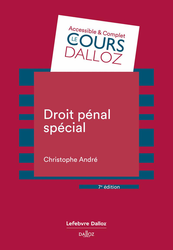
► Référence complète : Ch. André, Droit pénal spécial, Dalloz, coll. "Cours Dalloz - Série Droit privé", 1ière éd., 2010, 7ième éd., 2021, 552 p.
____
► Présentation de l'ouvrage : La 6ième édition de ce Cours est à jour des réformes qui continuellement modifient les infractions pénales, notamment en matière économique et financière mais aussi sociales (par exemple les "gilets jaunes"), montrant avant tout la constante de la crise d'un droit pénal déliquescent et désormais éclaté en droits répressifs spéciaux. Aujourd'hui c'est non seulement un droit pénal spécial mais encore voire avant tout un droit pénal d'exceptions (ce qui pose problème au regard du droit pénal général, lequel est indissociable de la procédure pénal) qu'il faut apprendre, étudiants comme praticiens.
Ce Cours est construit en trois parties.
La première traite des infractions contre les personnes ; la deuxième des infractions contre les biens ; la troisième contres la Nation, l'État et la paix publique.
Les éléments de procédure pénale, indissociables du droit pénal, sont expliqués à chaque infraction explicitée.
____
📕lire la quatrième de couverture
____
📕lire la table des matières
____
📚Consulter l'ensemble de la collection dans laquelle l'ouvrage a été publié
____
📚Sont directement corrélés à cet ouvrage :
________

Aug. 2, 2024
Publications

🌐follow Marie-Anne Frison-Roche sur LinkedIn
🌐subscribe to the Newsletter MAFR Regulation, Compliance, Law
🌐subscribe to the Video Newsletter MAFR Surplomb
____
 ► Full Reference: M.-A. Frison-Roche, Systemic Litigation, Working Paper, July 2024.
► Full Reference: M.-A. Frison-Roche, Systemic Litigation, Working Paper, July 2024.
____
📝Ce This Working Paper has been the basis for an article tot be published in French in the Recueil Dalloz.
____
► Summary of this Working Paper: We are seeing the Emergence of a category of its own and must be designated by a singular expression: 'Systemic Litigation' (I). This category is composed of concrete cases, "Systemic Cases", in which a system is entirely involved. The interest in these systems, insofar as they are all a system, unifies the category and justifies its own procedural, institutional and jurisdictional treatment. This type of Litigation is Emerging for three reasons, which are recorded in the Systemic Cases (II). Systemic Litigation must be dealt with in a way that is both specific and unified. This is beginning to happen and must be expanded (III).
____
🔓read the developments below
July 11, 2024
Thesaurus : Doctrine
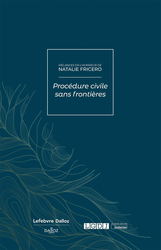
► Référence complète : Mélanges en l'honneur de Natalie Fricero. Procédure civile sans frontières, Dalloz et LGDJ, 2024, 704 p.
____
____
📗lire le sommaire de l'ouvrage
____
► Résumé de l'ouvrage (fait par l'éditeur) : "Il est des matières indissociables de certains noms et des noms indissociables de certaines matières. Tel est le lien unissant la Professeure Natalie Fricero et la procédure civile.
Professeure des universités à la Faculté de droit de l’Université de Nice (Côte d’Azur), directrice de l’Institut d’études judiciaires de cette faculté pendant plus de 20 ans, présidente de la première Commission nationale de l’examen d’entrée aux CRFPA, membre du Conseil supérieur de la magistrature entre 2019 et 2022, membre du Conseil national de la médiation depuis 2023, doyenne du pôle civil de l’École nationale de la magistrature, ambassadrice de l’amiable, Natalie Fricero a une carrière immense, voire vertigineuse. Son apport à la doctrine procédurale contemporaine est unanimement reconnu en France et au-delà des frontières nationales par l’ensemble de ses pairs et des professionnels du droit.
Les frontières, la Professeure Natalie Fricero n’a eu de cesse de les repousser, de s’en affranchir, voire de les abolir. Travaillant de concert avec les professions juridiques, la Professeure Natalie Fricero a fait céder la frontière entre le monde universitaire et celui des praticiens. Disruptive, elle a innové dans ses pratiques pédagogiques et œuvre continuellement à une conception moderne de la procédure civile dont elle a très tôt repoussé les limites pour y intégrer les modes amiables de résolution des différends. Pragmatique, elle a considérablement amélioré la lisibilité de la matière tant pour la communauté académique que pour les professionnels à l'échelle nationale et internationale, grâce à ses nombreux ouvrages, articles, conférences, communications, formations et sa participation décisive au code mondial de l'exécution et au code mondial de l'exécution digitale. Précurseur, elle a su saisir en avance l'influx de l’européanisation de la procédure et des droits de l'Homme, mais aussi les opportunités des nouvelles technologies, dessinant les lignes de la procédure civile de demain.
Par sa générosité, son enthousiasme, son dynamisme et son talent, la Professeure Natalie Fricero continue de marquer des générations d’étudiants, d'inspirer nombre de ses collègues et d’influencer la communauté juridique. En lui consacrant ces Mélanges, ses amis souhaitent la remercier de ce qu’elle apporte à chacun et à la procédure civile ; une discipline qu’elle veut humaniste, généreuse, sans frontières ; une procédure civile à son image.".
____
📝lire une présentation de l'article d'Hervé Croze : "Dieu nous garde du contrôle de proportionnalité"
_________